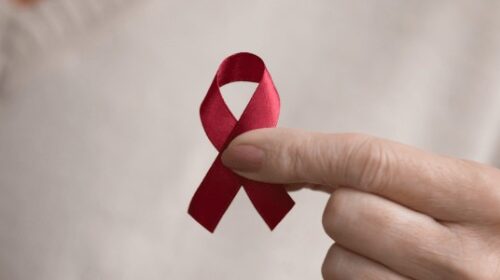Addiction is a complex issue that affects each individual differently. The disease affects the individual’s brain and behavior, eventually leading to a loss of control over their substance use.
Many intervention methods and therapeutic approaches exist to treat individuals struggling with addiction. Plant-based medicine is one potential option.
Plant-based medicine has gained popularity in recent decades. Like other medication-assisted treatments, using plants alone cannot treat someone’s addiction. But using them in conjunction with therapy and other supports may be part of a potential addiction treatment plan.
The use of plants to support your recovery is a popular topic, as there are risks and the potential to experience an addiction transfer. We’ll explore the effectiveness and potential benefits of plant-based medicine, as well as the risks to use for addiction treatment.
Understanding Plant-Based Medicine
Plant-based medicine uses plants and their derivatives for medicinal purposes. The practice involves harnessing the therapeutic properties of various plant parts, such as leaves, stems, roots, flowers, and seeds, to prevent, treat, or manage diseases and promote overall well-being.
Plants contain a wide array of chemical compounds which can have pharmacological effects on the human body to promote healing and alleviate symptoms. Plant-based medicine has been used for many years.
History of Plant-Based Medicine
Plant-based medicine has a rich history. It has been practiced for centuries across different cultures and can be referred to as herbal, traditional, or botanical medicine.
Often called the “father of medicine,” Greek physician Hippocrates emphasized nature’s healing power and regularly used herbal remedies for his patients. Another Greek physician and pharmacologist, Dioscorides, compiled a 5-volume herbal encyclopedia called De Materia Medica, a standard reference for herbal medicine for 16 centuries.
Many other ancient civilizations used plants for medicinal purposes. Traditional systems of medicine, such as Ayurveda in India, Traditional Chinese Medicine (TCM), and Indigenous healing practices, rely heavily on plant-based medicine for health and wellness.
More recently, the study of plants and their medicinal properties started to gain momentum in the 19th and 20th centuries. However, using plants for medicine has become more prevalent in recent decades due to synthetic drugs’ potential side effects and limitations.
Plant-Based Medicine Uses
Typically, using plant-based medicine involves preparing plant materials in various forms, including teas, tinctures, extracts, and capsules. These preparations are often administered topically, orally, or through inhalation.
We use plant-based medicine for a range of health conditions, including but not limited to:
- Digestive disorders
- Respiratory issues
- Pain management
- Skin conditions
- Hormonal imbalances
- Immune system support
- Mental health conditions
Although plant-based medicine can be effective, its use should be approached cautiously and under the guidance of qualified healthcare professionals, as some plants can have potent and dangerous effects and can cause negative interactions with some medications.
Plant-Based Medicine for Addiction Treatment
Plant-based medicine has shown great potential for treating addiction. This holistic approach goes beyond symptom management and is utilized for various parts of an individual’s recovery journey.
One notable aspect of plant-based medicine for addiction treatment is its ability to support holistic detoxification. According to the holistic health practitioner Nony Morgan, using a holistic detoxification process for drug and alcohol recovery is a “natural body detoxification program for general health maintenance and recovery.”
A comprehensive detoxification process uses specific herbs and other pharmaceutical alternatives to promote optimal organ function. Treating addiction is a whole mind-body process; most care provided at treatment centers reflects this.
THC and CBD for Harm Reduction
Cannabinoids are the active compound in the plant that interacts with the part of the brain that plays a role in reward pathways. For this reason, the plant is used by people for managing withdrawal symptoms and cravings.
Using THC or CBD for addiction treatment could help individuals reduce or stop their use or act as substitutes for other substances.
Many states have allowed the use of marijuana for medicinal purposes, and some states have fully legalized it for recreational use.
Psilocybin-Assisted Therapy for Addiction Recovery
Often called “magic mushrooms,” psilocybin is used for behavior change in individuals with substance use disorder.
During a therapeutic session, individuals receive a controlled and supervised dose of psilocybin in conjunction with therapy and professional guidance.
Individuals reported varying psychological effects, such as increased emotional openness, interconnectedness, and altered perception. Researchers hypothesize using them may enhance motivations for change and promote emotional healing, both crucial parts of addiction therapy.
The use, sale, and possession of psilocybin is illegal under federal law in the United States; however, in some states, it has been decriminalized or legalized.
Ayahuasca for Emotional Healing and Self-Reflection
Ayahuasca is a sacred tea mixture made from the Amazonian vine Banisteriopsis caapi.
In the US, DMT (dimethyltryptamine), the psychedelic found in Ayahuasca, is illegal but it’s legal in many South American countries.
The brown-reddish brew is made by boiling the vine and has a strong smell and taste. And it’s been used for decades for ritual and therapeutic purposes.
A 2021 literature review found a favorable result for use in individuals with depression and anxiety, but the research is inconclusive. The short-lived positive effect for mindfulness, self-acceptance, and overall well-being was experienced by individuals involved in the review.
It’s not without risk. The review also found there were five fatalities reported after ayahuasca use. And psychiatric and non-psychiatric risks include agitation or aggression, vomiting, hallucinations, and seizures.
Kratom for Harm-Reduction
The leaves of the Southeast Asian kratom tree contain alkaloids that interact with opioid receptors in the brain to produce effects similar to those opioids would have. The effects can alleviate withdrawal symptoms and cravings for individuals struggling with addiction.
Typically kratom is consumed in powdered form but has also been made into tinctures, edibles, and resins. In the United States, people mainly use it to self-medicate mood disorders, pain, and substance abuse disorders.¹
Although kratom is illegal and federally unregulated in the United States, its use has increased in recent years. However, kratom itself can be addictive. There are also various potential side effects of using kratom, including but not limited to liver toxicity, respiratory depression, and seizures. Kratom’s effectiveness for use with individuals with addiction is still under heavy scrutiny.
Plant-Based Medicine with Therapy and Counseling
While plants offer unique therapeutic properties, professional therapy, and counseling provide support, coping skills, and behavior modification strategies essential for a sustainable recovery.
The therapeutic approaches empower individuals to identify and work through negative thought patterns, develop new healthy habits and explore who they are and want to be without drugs or alcohol. Integrating plant-based medicine into therapy may enhance the process.
Mindfulness practices such as meditation and breath work can be particularly beneficial when used alongside plant-based medicine as they cultivate a present-moment awareness.
Spiritual practices are used with plant-based medicine to provide a sense of peace and connection and act as a source of strength as a person moves through their recovery journey.
Using plants can enhance and deepen spiritual exploration, bring a sense of interconnectedness, and enhance an individual’s overall well-being.
Safety and Risks of Plant-Based Medicine
Understanding the risks associated with plant-based medicine is essential to the discussion.
Plant-based therapy is not suitable for all individuals. Extensive screening and assessment are necessary to ensure individuals are appropriate for the therapies.
It’s important to note that all plant-based therapies mentioned in this article should only be administered and supervised by trained professionals. Recovery Unplugged does not condone illegal drug activity, even for healing purposes. Our trained, experienced professionals use evidence-based therapies that are legal in their respective states.
As previously noted, various potential side effects and adverse reactions are possible with plant-based medicine therapies, including specific medication interactions. Individuals who struggle with addiction may also experience dependency or addiction transfer, which involves becoming addicted to the plant used to treat their initial addiction.
Although more research is needed, concerns exist regarding its potential to interfere with someone’s recovery. It is also important to note the additional therapies required with plant-based medication.
More research is needed to ensure plant-based medicine’s effectiveness as a potential treatment for addiction. However, plant-based medicine’s potential benefits and effectiveness in addiction treatment are promising.
At Recovery Unplugged
Because many plant-based medications are not safe or legalized for use in the United States, we do our part to provide you with freshly prepared and healthy foods to nourish your body during treatment.
Food provides nourishment, enjoyment, and nutrition, benefiting addiction treatment and recovery. And if you aren’t careful, lack of nutrition can exacerbate your withdrawal symptoms.
You’re with us to get better, and our experienced chefs ensure meals and snacks are freshly prepared a promote your healing.
If you or someone you know is struggling with addiction, help is not far away. Call Recovery Unplugged today at 1 (855) 975-1757. Our experienced professionals are available 24/7, every day of the year. You don’t have to struggle alone.

























